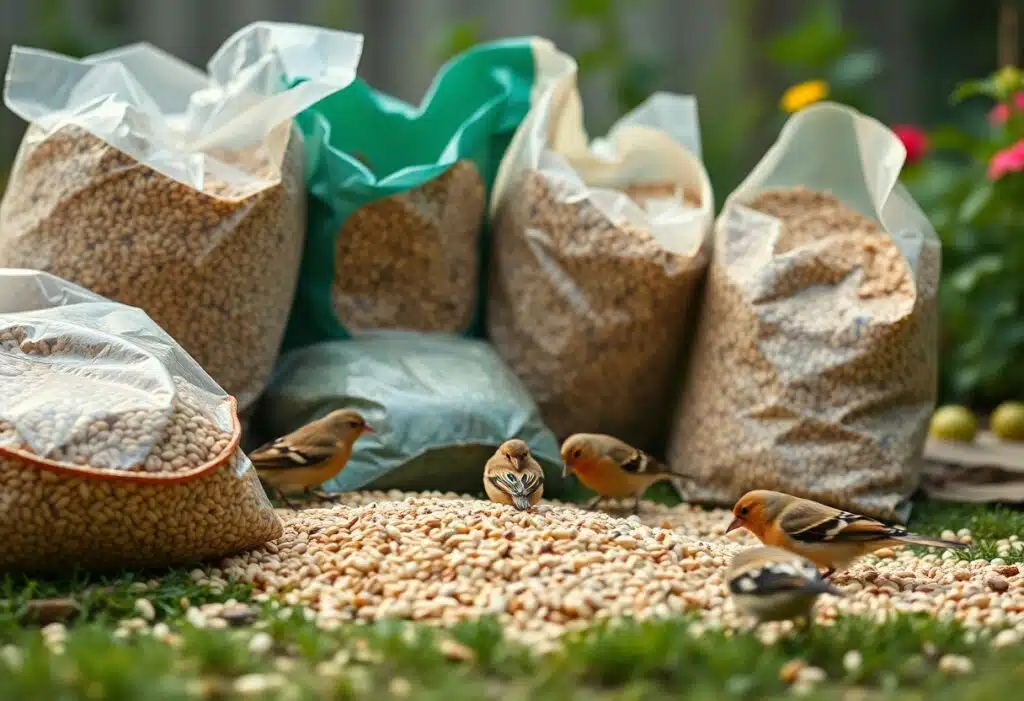Understanding Birdseed Shelf Life: Does Your Bird Food Go Bad?
As you fill your bird feeders, have you ever wondered if the birdseed can go bad? The answer is yes, it can! Stored improperly, birdseed can spoil, become rancid, and even grow mold or mildew, making it harmful to your feathered friends. But don’t worry, with proper storage and a few simple checks, you can keep your birdseed fresh and nutritious for your birds to enjoy. In this article, we’ll explore the shelf life of birdseed, signs of spoilage, and tips on how to store your birdseed to keep it fresh and healthy for your birds. 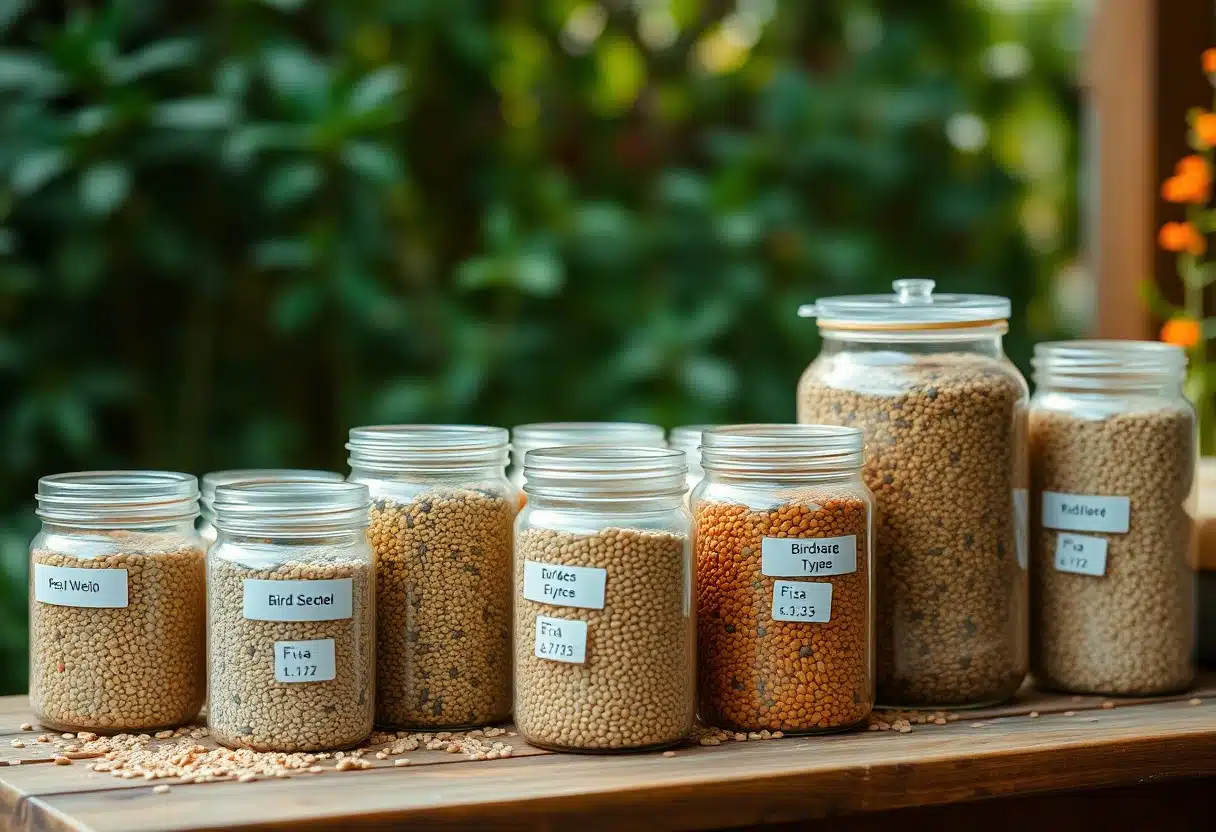
Key Takeaways:
- Birdseed Shelf Life: Birdseed can go bad if not stored properly, and its shelf life varies depending on the type of seed and storage conditions. Generally, it can last between six and twelve months.
- Signs of Spoilage: Check for signs of spoilage such as mold, mildew, clumping, musty odor, and sprouted seeds. If you notice any of these signs, it’s likely the seed has gone bad and should be disposed of properly, perhaps by composting.
- Proper Storage: Store birdseed in a cool, dry place, away from direct sunlight, heat, and moisture. Use airtight containers with lids to prevent contamination and keep rodents out. Regularly inspect and rotate your seed stock to ensure freshness.
Note: It’s important to check the quality of the seed and store it properly to keep your bird feeders filled with fresh and nutritious food for your feathered friends. 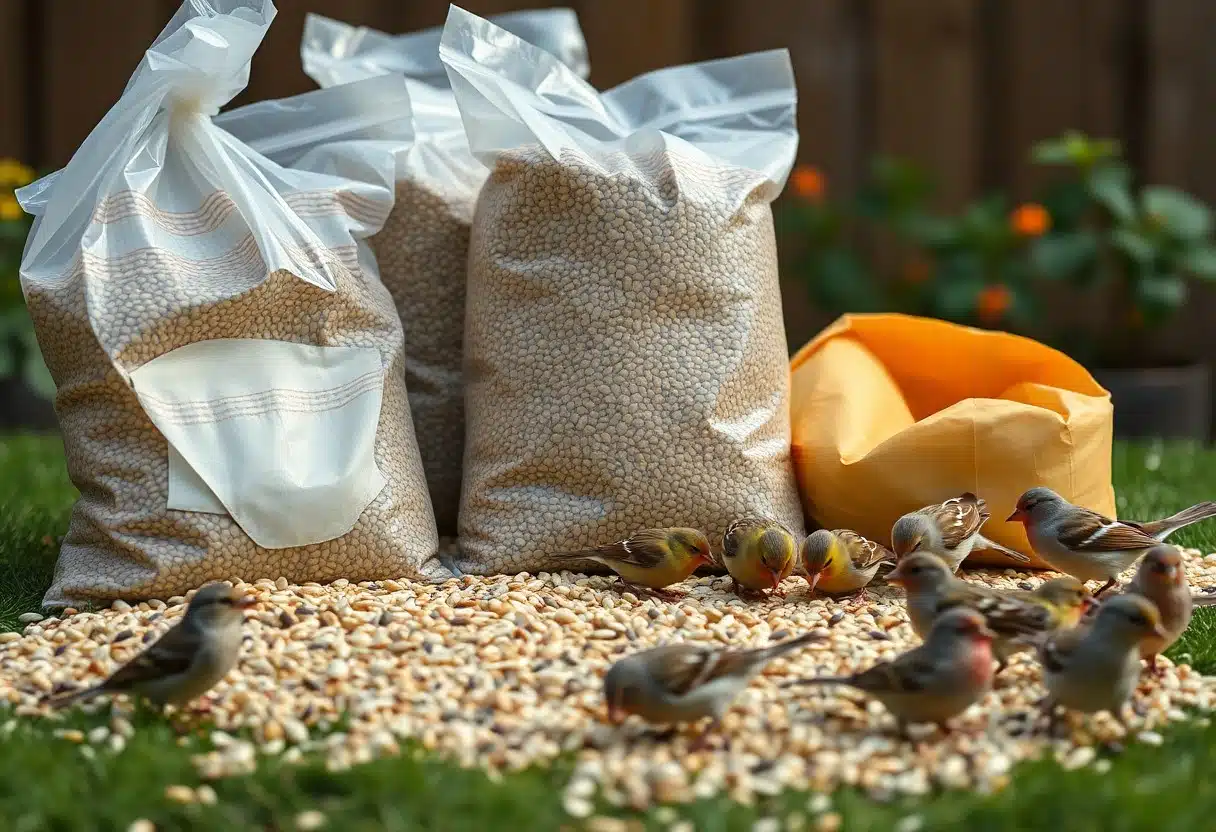
Signs of Spoilage
For birdseed to remain fresh and nutritious, it’s necessary to check for signs of spoilage regularly. Failing to do so can lead to unhealthy food for your feathered friends, which can be harmful to their well-being.
Visual Inspection
Signs of spoilage often start with a visual inspection. Look for any visible mold, mildew, or clumping of seeds. Check for live or dead insects, larvae, webbing, or other debris in the seed mix. Make sure to inspect the seed deep inside large containers, as the top layer may appear fresh while the rest is contaminated.
Smell Test
The smell test is another crucial indicator of spoilage. Check for any strong, sharp musty odor, which can indicate unwanted growth in your seed. Discoloured grain can also be a sign of fungus in the seed. At this point, it’s necessary to investigate further. If you suspect seeds have become moist, try sifting the seed for signs of dampness and clumping. Seeds that have clumped together may have been wet and are now unsuitable for your garden birds’ consumption. Sprouting seed is another sign of moisture, as is condensation under the lid or inside your storage container, indicating that the seed is getting into the seed. 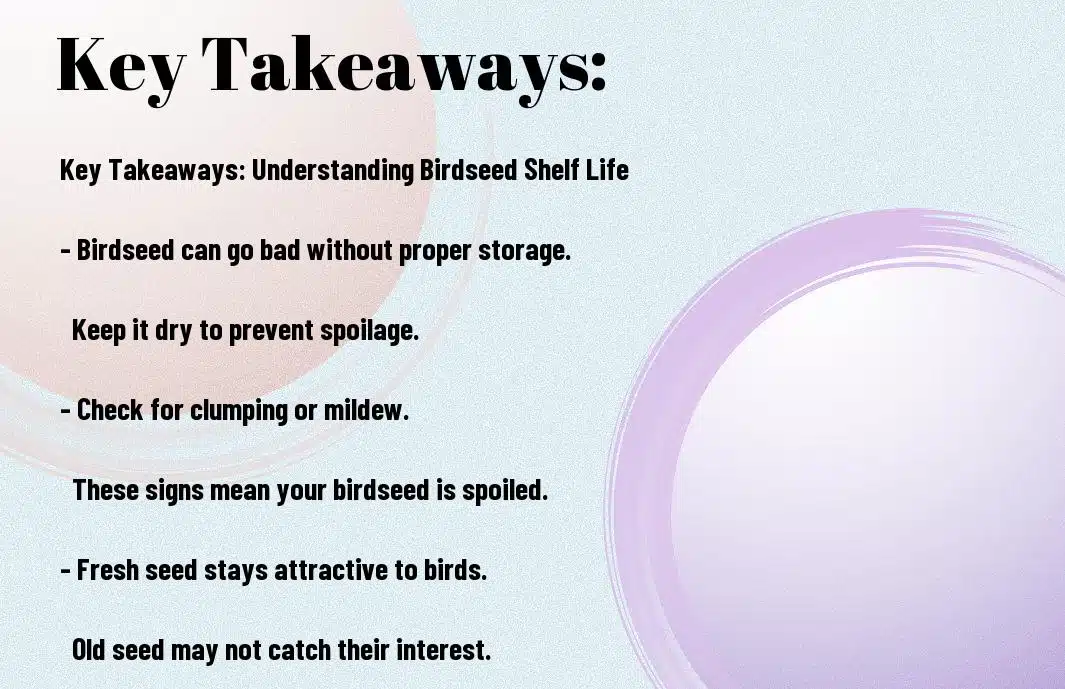
Storage Tips
It is necessary to store your birdseed properly to maintain its freshness and nutritional value, ensuring that high-quality seed will stay in optimal condition. Here are some tips to help you keep your birdseed fresh:
- Cool and Dry Conditions: Store your birdseed in a cool, dry place away from direct sunlight and moisture.
- Airtight Containers: Use airtight containers to prevent contamination and spoilage.
- Regularly Check for Signs of Spoilage: Regularly inspect your birdseed for signs of spoilage, such as mold, mildew, or clumping.
Perceiving these tips will help you keep your birdseed fresh and nutritious for your feathered friends.
Cool and Dry Conditions
Above all, it is crucial to store your birdseed in a cool and dry place. Avoid storing your birdseed in areas that are prone to moisture, such as basements or attics, as this can lead to damp conditions that spoil the seed. Instead, opt for a dry and well-ventilated area that is protected from direct sunlight.
Container Maintenance
Tips for maintaining your birdseed container include regularly cleaning and disinfecting the container, ensuring the lid is securely closed, and checking for any signs of damage or wear. It is also important to note that you should always check the expiration date of your birdseed and use the oldest seed first to ensure that birds are consuming fresh, high-quality seed. This will help ensure that your birdseed stays fresh and nutritious for your birds. 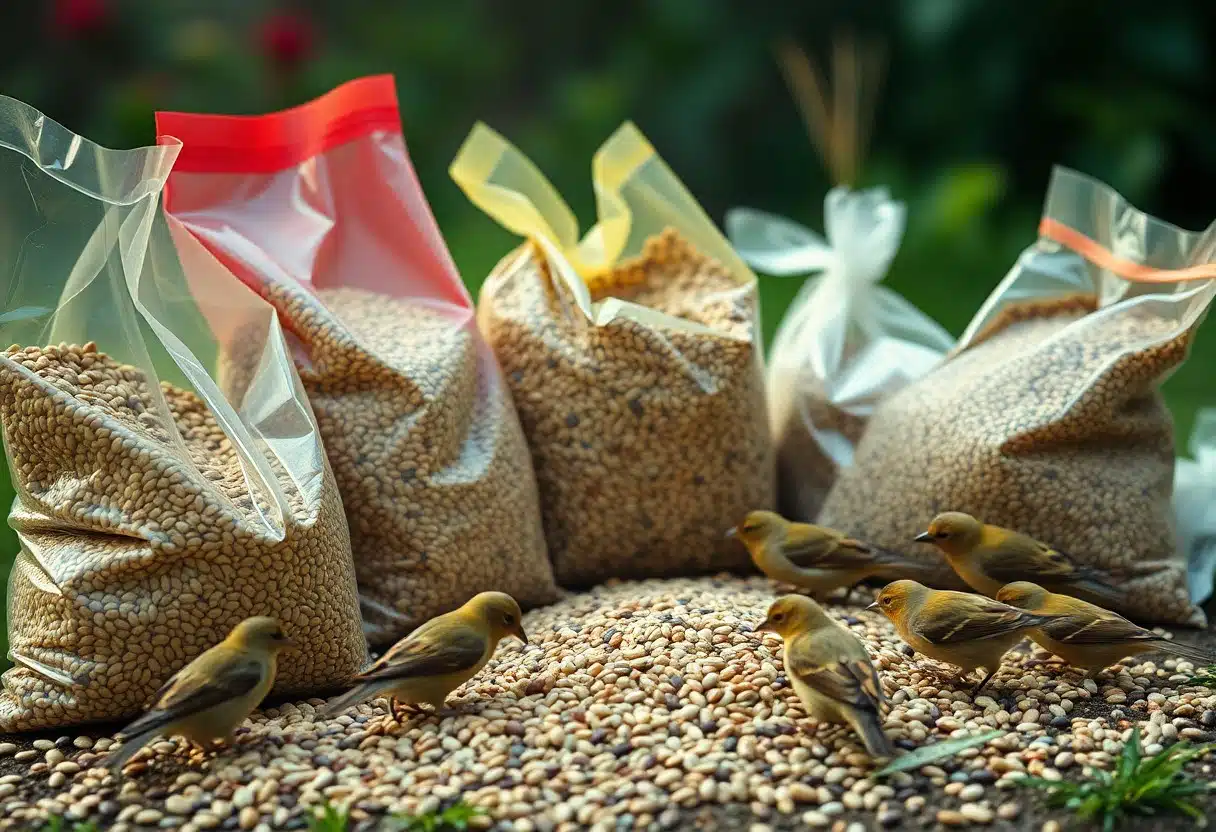
Common Issues
Not all birdseed stays fresh forever. In fact, it can go bad if not stored properly, leading to a range of issues that can affect the quality and safety of the seed.
Moisture and Mould
For instance, exposure to moisture can cause mould to grow, making the seed unpalatable and even harmful to birds. Check for signs of dampness, clumping, or mildew, which can indicate that the seed has gone bad.
Insect Infestation
One common problem is insect infestation, which can occur when seeds are stored in warm, humid environments. This can lead to larvae and other debris contaminating the seed, which can be detrimental to birds if they consume spoiled or damp seed. Insect infestation can be a significant issue, as it can cause the seed to spoil quickly. Check for signs of infestation, such as live or dead insects, larvae, webbing, or other debris, and dispose of the seed immediately if you suspect contamination.
Disposal and Replacement
Keep your bird’s health and safety in mind when disposing of spoiled seed and replacing it with fresh birdseed. Proper disposal and replacement techniques will prevent the spread of disease and maintain a clean feeding environment.
Removing Spoiled Seed
Along with removing spoiled seed, you should also clean and disinfect your storage containers to prevent the growth of mold and bacteria. This will ensure that your new batch of birdseed remains fresh and healthy for your feathered friends.
Cleaning and Disinfecting Containers
An imperative step in maintaining a clean feeding environment is to regularly clean and disinfect your birdseed containers. This will prevent the buildup of harmful bacteria and mold that can contaminate your birdseed. Plus, cleaning and disinfecting your containers will also help to eliminate any lingering odors that may attract pests or deter birds from feeding. Make sure to use a mild detergent and warm water to clean your containers, and then disinfect them with a solution of one part white vinegar to nine parts water.
FAQ
Q: How often should I clean and disinfect my birdseed containers? A: It’s recommended to clean and disinfect your containers every 1-2 months, or whenever you notice signs of spoilage or contamination, to ensure that no damp conditions develop.
Seed Rotation and Management
Many bird enthusiasts overlook the importance of seed rotation and management, which can lead to stale or spoiled birdseed. By implementing a few simple strategies, you can ensure that your birdseed stays fresh and nutritious for your feathered friends.
Using Oldest Seed First
By using your oldest seed first, you can prevent older seed from spoiling and reduce waste. This simple technique ensures that your birdseed stays fresh and prevents older seed from going bad.
Purchasing Seed in Appropriate Quantities
Above all, it’s crucial to purchase birdseed in quantities that match the appetites of your birds. This approach prevents excess seed from going bad and saves you money in the long run. Management of birdseed inventory is critical to maintaining freshness. By purchasing seed in smaller quantities, you can refill your feeders regularly, ensuring that your birdseed stays fresh and nutritious. This approach also helps prevent infestations, mold, and bacteria growth, which can be harmful to birds and may occur if the seed is exposed to moisture.
Conclusion
Summing up, understanding birdseed shelf life is crucial to keeping your feathered friends healthy and happy, ensuring they are consuming high-quality seed. You now know that birdseed can go bad if not stored properly, and it’s crucial to check for signs of spoilage regularly. By storing your birdseed in a cool, dry place, away from pests and moisture, you can ensure it stays fresh for a longer period. Remember to always use your oldest seed first, and refill your feeders with fresh seed regularly. With these simple tips, you can provide your birds with nutritious food and keep them coming back to your feeders.
FAQ
Q: Does birdseed go bad?
A: Yes, birdseed can go bad if it’s not stored properly. Exposure to moisture, heat, and pests can cause seed to spoil, become moldy, or develop an unpleasant odor.
Q: How can I tell if my birdseed has gone bad?
A: Check for signs of spoilage such as clumping, mold, mildew, or a rancid smell. If you notice any of these signs, it’s likely the seed has gone bad.
Q: How can I keep my birdseed fresh for a longer period?
A: Store birdseed in a cool, dry place, away from direct sunlight and moisture. Use airtight containers with lids to prevent contamination, and always check the seed for signs of spoilage before refilling your bird feeders.
As a bird enthusiast with a passion for sharing the wonders of our feathered friends. As a writer and nature lover, I'm thrilled to connect with fellow bird buffs and inspire others to take flight into the fascinating world of birds. Let's wing it together!

